Twyla Tharp Quotes & Sayings (Page 5)
Twyla Tharp quotes and sayings page 5 (84 year old dancer). Here's quote # 41 through 50 out of the 138 we have for her.
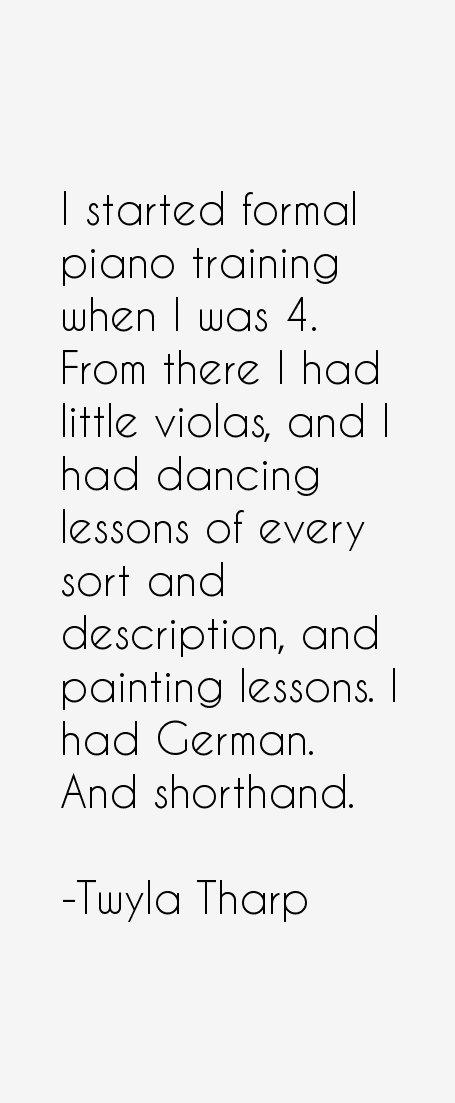
“I started formal piano training when I was 4. From there I had little violas, and I had dancing lessons of every sort and description, and painting lessons. I had German. And shorthand.”
“Proust writes, he remembers, physically. He depends on his body to give him the information that will bring him to the past. His book is called 'In Search of Lost Time,' and he does it through the senses. He does it through smell. He does it through feeling. He does it through texture. It is all physically driven, that language.”
“What I do remember is visualization of the sound of music, seeing bodies in movement in relation to how music sounded, because my mother practiced at the keyboard a lot and I also went to her lessons. As a two year old, three year old I remember seeing things in movement.”
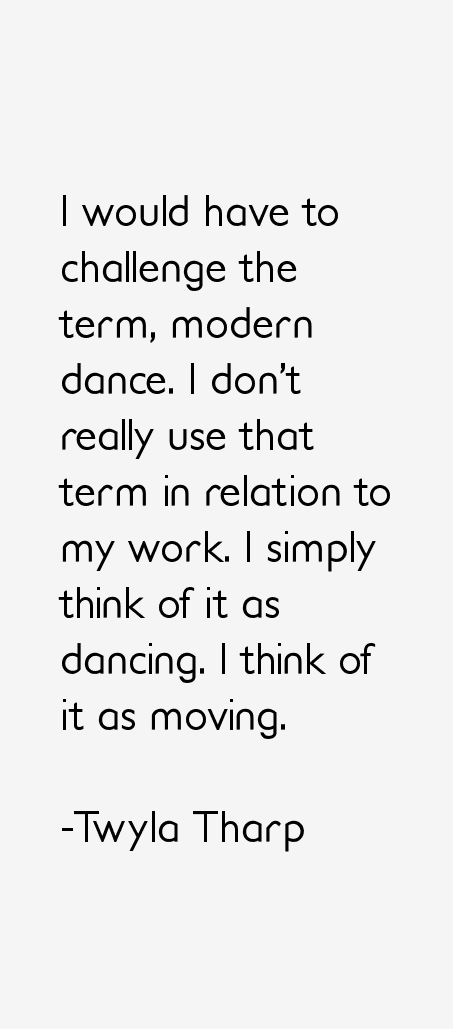
“I would have to challenge the term, modern dance. I don't really use that term in relation to my work. I simply think of it as dancing. I think of it as moving.”
“Well, Mozart is extraordinary not only in that he became virtuoso along the lines of his father, but that he had that compositional gift, that melodic gift. By the time he was four, he was doing piano concertos with harmony in the background.”
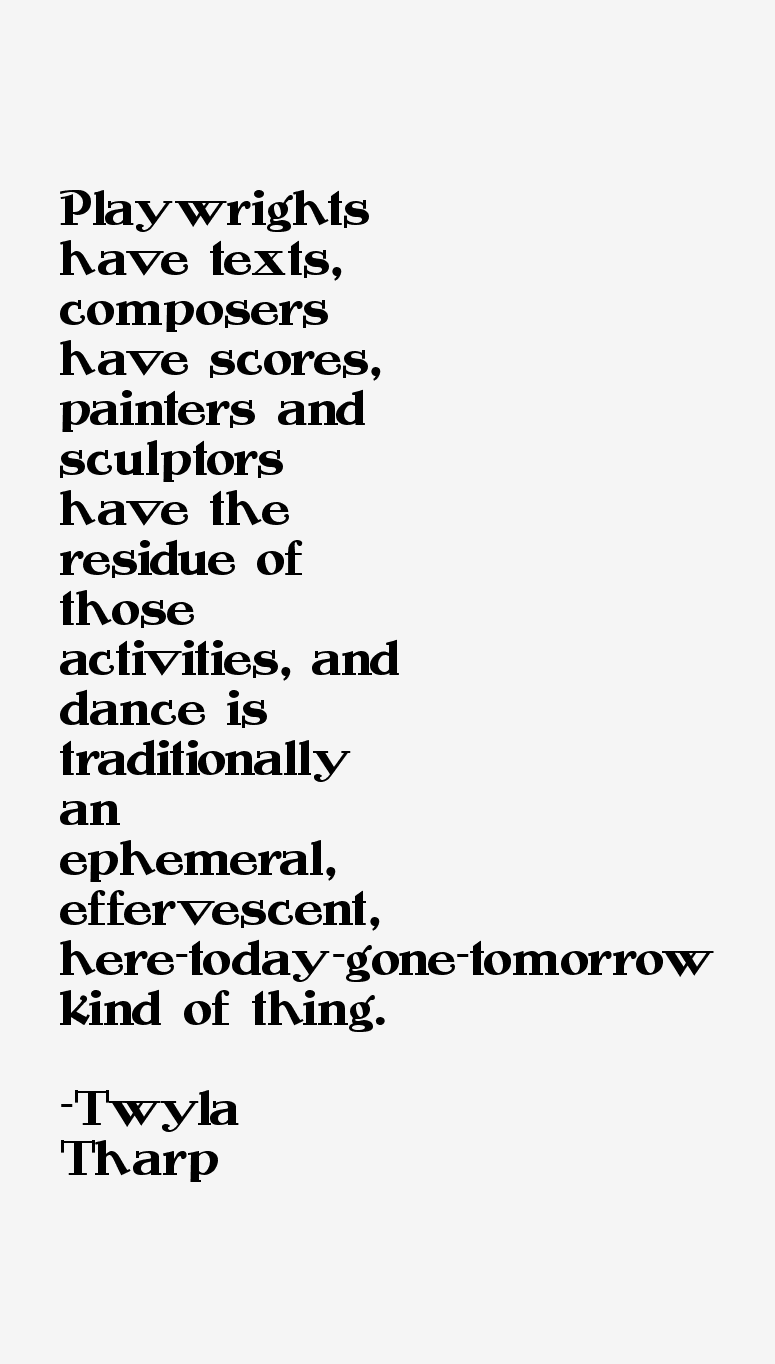
“Playwrights have texts, composers have scores, painters and sculptors have the residue of those activities, and dance is traditionally an ephemeral, effervescent, here-today-gone-tomorrow kind of thing.”
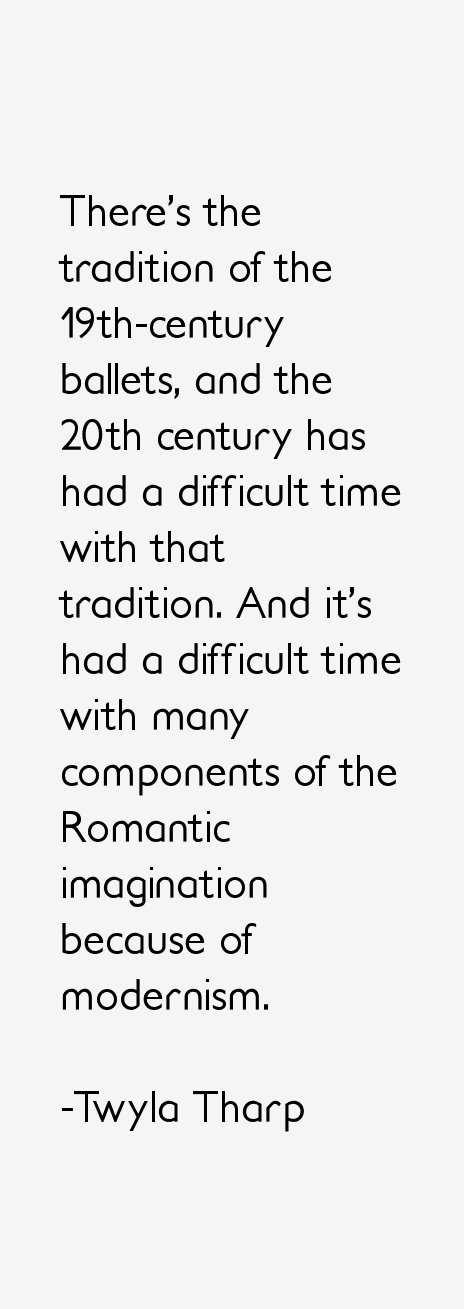
“There's the tradition of the 19th-century ballets, and the 20th century has had a difficult time with that tradition. And it's had a difficult time with many components of the Romantic imagination because of modernism.”
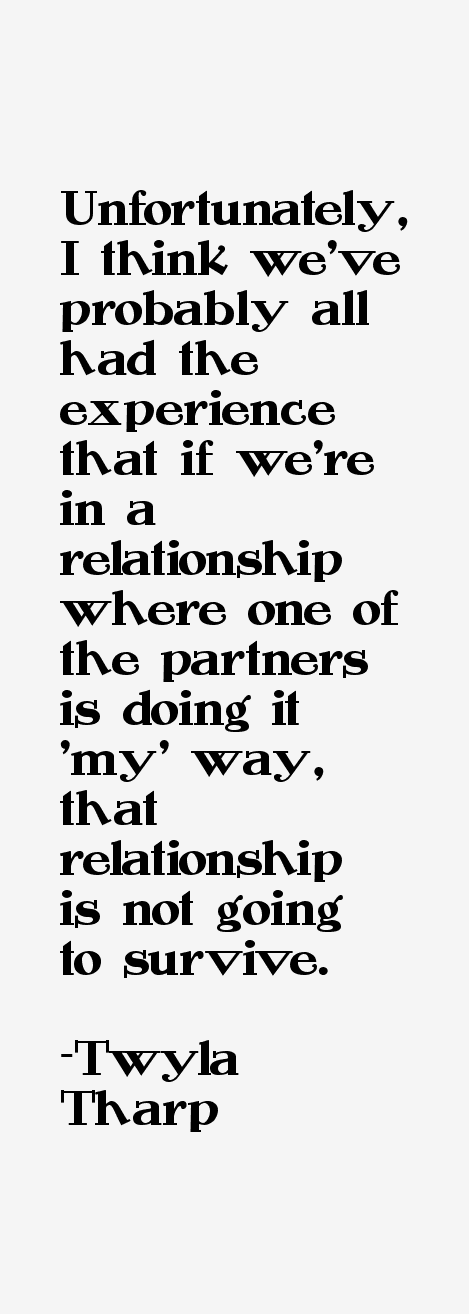
“Unfortunately, I think we've probably all had the experience that if we're in a relationship where one of the partners is doing it 'my' way, that relationship is not going to survive.”
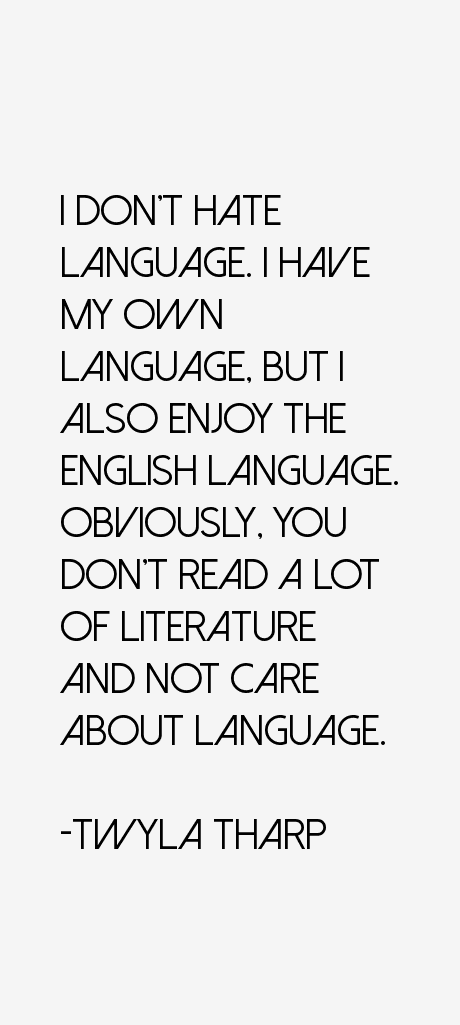
“I don't hate language. I have my own language, but I also enjoy the English language. Obviously, you don't read a lot of literature and not care about language.”
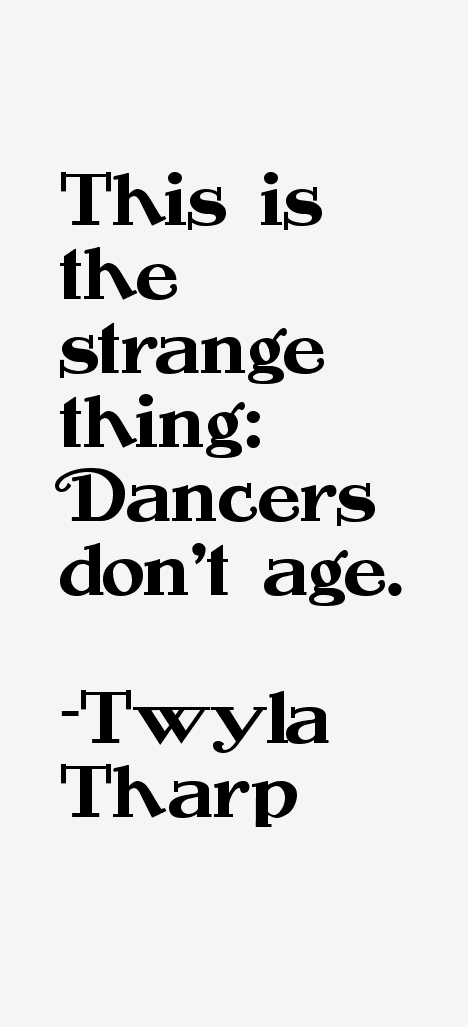
“This is the strange thing: Dancers don't age.”
Twyla Tharp Quotes Rating
No Ratings Yet
Leave A Comment
























